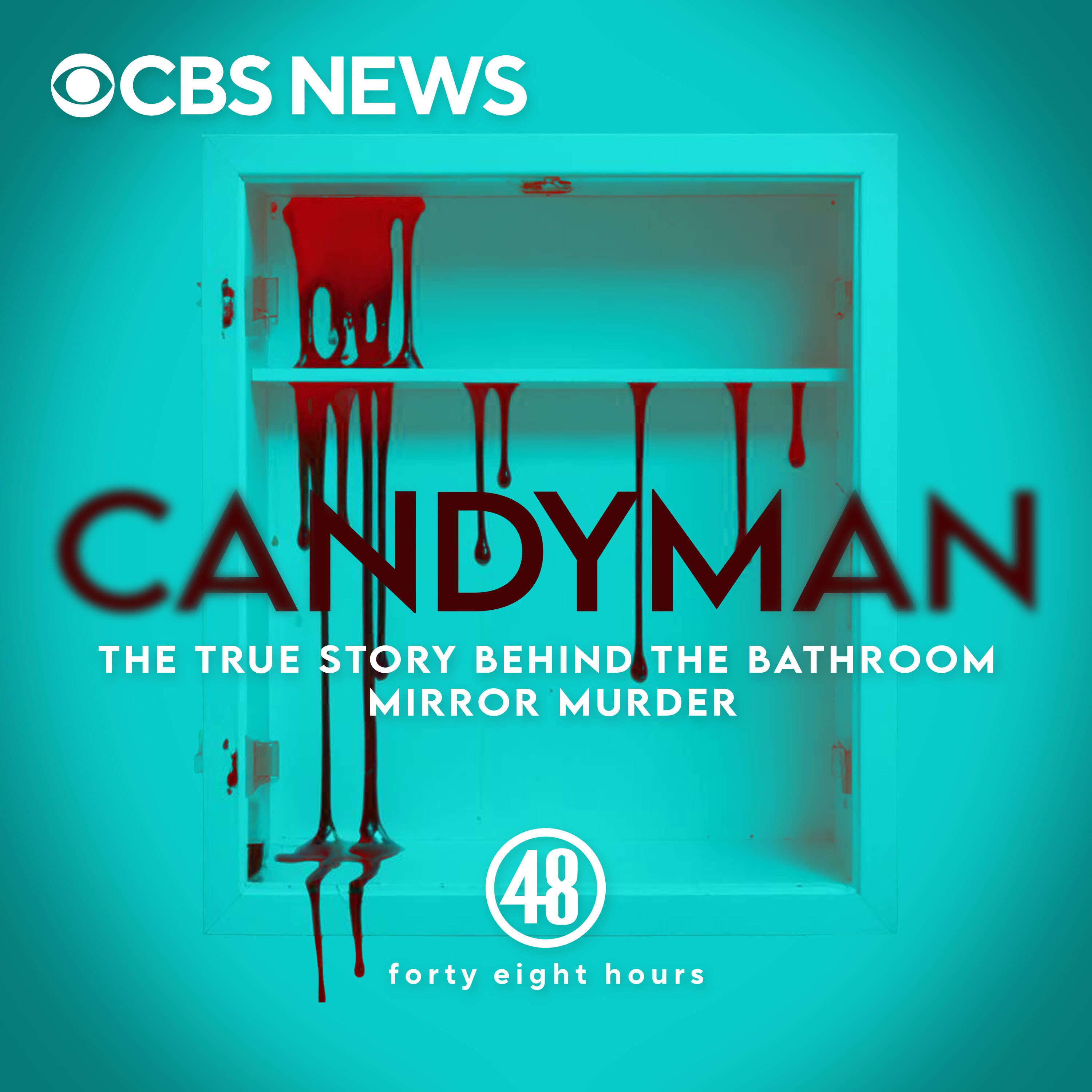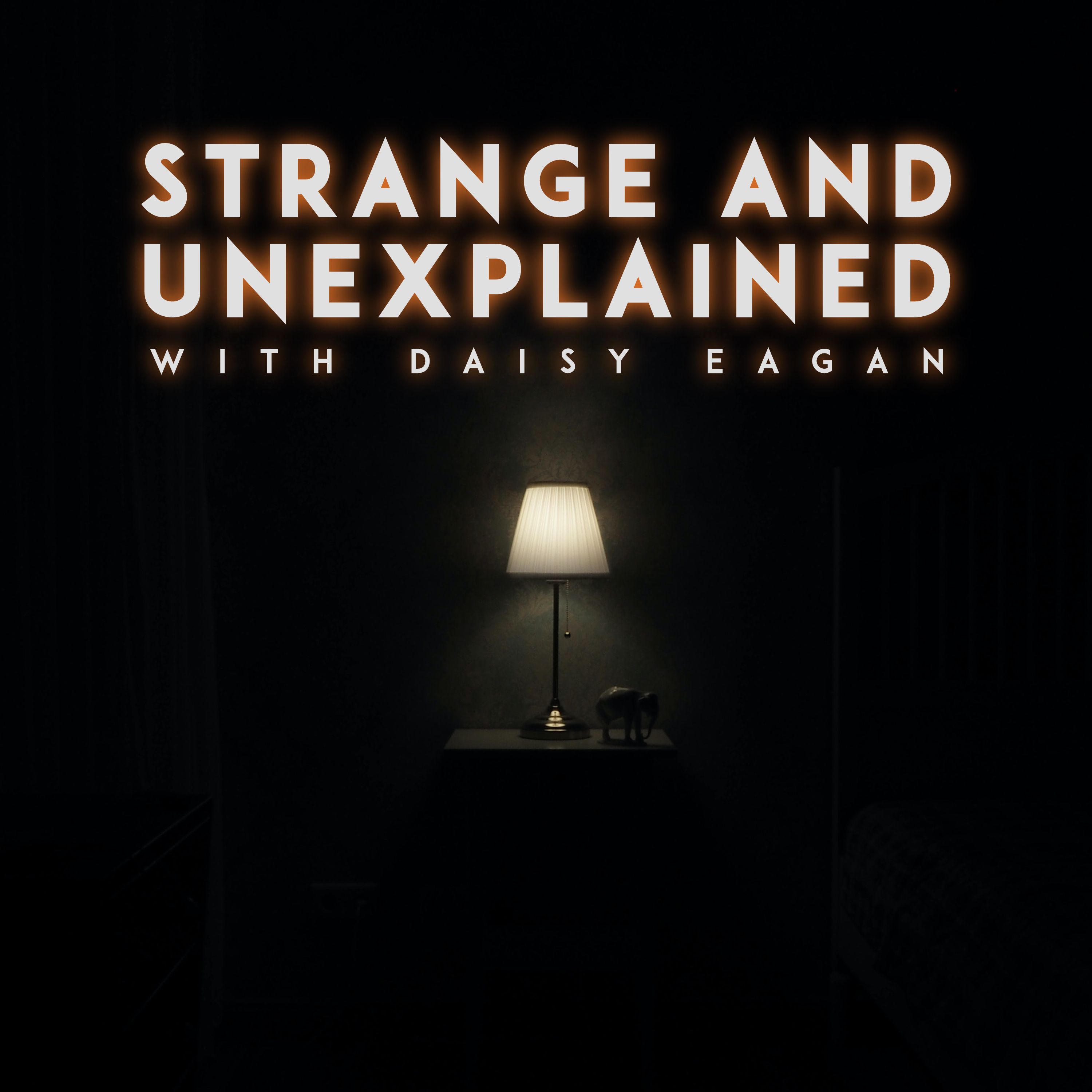
Presenting "Candyman: The True Story Behind The Bathroom Mirror Murder"

Strange and Unexplained with Daisy Eagan
Deep Dive
Shownotes Transcript
What's up, listeners? I'm Dometi Pongo, MTV correspondent, Chicago native, and the host of the new podcast, Candyman, the true story behind the bathroom mirror murder. This podcast tells the real-life story that inspired a popular horror film. Based in Chicago, Candyman is a villain who terrorizes anyone who summons him through the mirror. Here's a clip from an episode. When I was a kid, I was scared of Candyman. He was the killer from this old horror movie from 1992 that became a cult classic.
Candyman had a hook for a hand and he got you with it for no other reason than that you said his name five times into a bathroom mirror. Candyman. Candyman? Candyman. And there was something about Candyman that seemed more real, like more dangerous than any other movie villain. I mean, there were no white guys that looked like the slasher from the Halloween franchise walking around my South Side Chicago neighborhood.
Like I didn't see a lot of dudes with hockey masks either. So those weren't as scary to me. But Candyman, he looked like somebody I might actually bump into. His brother was 6'5", with this eerie, baritone, deep voice. What's blood for, if not for shedding? And he wore this creepy black trench coat.
And one of my big cousins knew I was scared of him, so he used to try to lock me in the bathroom with the lights off to prank me. So needless to say, I avoided watching this movie for years, even though it's set in my hometown. But not too long ago, I finally sat down to watch it. And when I did, I realized Candyman is about so much more than a murderous urban legend. See, this movie is actually about a dark chapter in the history of Chicago.
It low-key shows us what happens when a city refuses to care for its own residents. And it's about who gets to feel safe in their own homes in this country, even today. Candyman is set in a public housing project called Cabrini Green. There's this graduate student named Helen who is studying urban legends, and she's dead set on finding out more about this one.
In one of the early scenes, Helen is in an empty classroom at her university listening to a tape recording. Someone's describing one of the Candyman's murders. A janitor who's cleaning the room overhears the recording. In true Hollywood fashion, the janitor just so happens to know someone who can tell Helen more about Candyman.
I think her name was Ruthie Jean. And she heard this banging and smashing like somebody was trying to make a hole in the wall. So Ruthie called 911 and she said there's somebody coming through the walls. And they didn't believe her. They thought the lady was crazy, right? Helen does some research and found out that a woman was killed by someone who came in through her bathroom mirror. So she and another grad student visit the high-rise apartment in the projects.
They go upstairs to the murder victim's apartment. It's unlocked. They both walk in and go into Ruthie Jean's bathroom. It's eerie. After all, whoever killed her got into the apartment this same way. Helen opens the medicine cabinet. Or killers. They don't know which. Smash their way through the back of this cabinet. See, there's no wall there.
The story of Candyman is fictional, of course. We all know that saying "Candyman" five times in the bathroom mirror doesn't actually conjure up a killer ghost. But the murder of Ruthie Jean in the movie shares horrifying similarities to the killing of a real person. That woman's name wasn't Ruthie Jean, but Ruthie Mae McCoy. It must have been a couple of years after Candyman came out. Somehow, I hadn't heard of it. And people told me
Hey, you know, there's stuff in here that seems to be from the story you wrote. That's Steve Bagheera. He's a reporter who followed the case of the real murder for years. In the movie, they showed a Chicago Dispatch headline, What Killed Ruthie Jean? Life in the Projects.
which was almost identical to the headline of the story I wrote. Steve wrote a series of investigative pieces about Ruthie Mae McCoy's murder for a weekly newspaper called The Chicago Reader. In 1987, after she died, he visited Ruthie Mae's apartment. It was on the 11th floor of a high-rise in one of Chicago's housing projects. There happened to be a janitor who was cleaning up in her apartment. The door was open, and I was able to go in.
Whoever murdered Ruthie Mae McCoy somehow entered her apartment through her bathroom mirror. She had heard the intruders coming and had called 911. In this podcast, we're taking another look at the true nightmare that inspired a major film franchise. They just cast her out like she was nobody. They didn't care. It was just like another Black person just got murdered. Oh, okay, we'll go to the next one.
Now when we talk about crime, we talk about violence, there's this thing where we do a presumption that the people and not the conditions are responsible. But what if the conditions in the projects and Ruthie Mae's killers are both responsible? You're supposed to feel safe at home. But back then, and even now, that's not always the case. And sometimes the danger in our own homes comes from the very people who are supposed to protect us.
Why didn't 911 get her the help she needed? And how had Ruthie Mae's medicine cabinet become a point of entry? I'm Dometi Punga. From 48 Hours, this is Candyman. The true story behind the bathroom mirror murder.
Thanks for listening to this clip of Candyman, the true story behind the bathroom mirror murder. If you want to hear the rest of the series, you can listen to Candyman, the true story behind the bathroom mirror murder early and ad free right now by joining 48 Hours Plus on Apple Podcasts or Wondery Plus in the Wondery app.